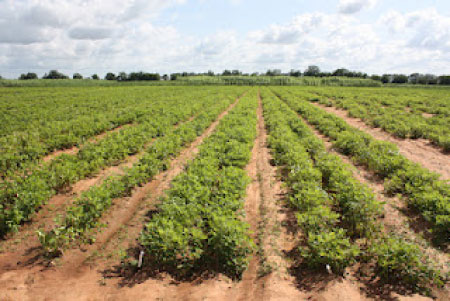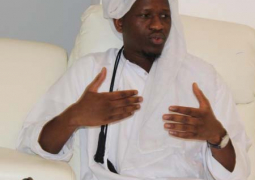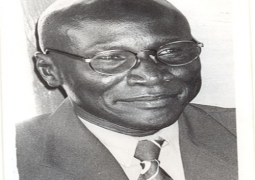
The management and staff of PIWAMP and other relevant stakeholders last Friday held a two-day annual consultative meeting for the year 2012 at Jenoi in Lower River Region.
The forum of important learning exercise brought together project staff, service providers and project beneficiaries to discuss and agree on courses of action for project activities that have been implemented.
The consultative forum also afforded all the stakeholders the opportunity to discuss openly critical issues affecting project implementation and to come to terms on the way forward.
In his overview of the project, PIWAMP Project Coordinator Momodou L. Gaasama said the realization that all the ecologies in the landscape are interlinked and cannot be targeted separately has led to the adoption of the concept of integrated watershed management in The Gambia.
It was then agreed by experts in the agriculture and natural resources sector, he explained, that a new follow-up project must be formulated to address all the environmental issues leading to low agricultural production and poor natural resource management, thus, the participatory integrated watershed management project (PIWAMP).
Mr Gassama also said The Gambia government in fulfilling its obligations to enable poor rural people to overcome poverty and achieve household food security and developed strategies within the project to ensure the goals are obtained through a sustainable use of the country’s land resource.
He said that as a result a participatory approach that ensured beneficiary contribution of unskilled labour during land development, while the project took responsibility for all other cost, was applied for PIWAMP.
He also said the PMU also comprises a financial controller, community mobilization officer, and monitoring and evaluation officer saying the team is aided by other support staff, field supervisors, principal officers and conservation field assistants (CFA).
The PMU, he added, is also supervised by a project steering committee (PSC) composed of permanent secretaries of ministries of agriculture and finance, and key institutions in the ANR sector.
The PSC approves the project implementation plan, annual work plans and budgets and also provides overall policy guidance, he said.
For the execution of the project activities and acquisition of M&E system information, the PMU signs annual agreements with eight implementing agencies called service providers, he said, adding that the service providers, in collaboration with project beneficiaries, will implement activities through a participatory approach.
It is the spirit of participatory implementation and ownership that brought together some PIWAMP project staff, service providers and project beneficiaries to critically reflect on the 2011 activities and come up with sound recommendations to ensure improved service delivery.
Speaking on behalf of the governor of LRR, Alhagie Jatta, a community development officer, said the forum was significant and development-oriented. “Therefore, on behalf of the deputy governor I urge all participants to devote their time and sincerity to openly discuss issues that will benefit the people and the beneficiaries.”
In his official opening speech, Asheme Cole, deputy permanent secretary at the Ministry of Agriculture responsible for projects and programmes, thanked the PIWAMP management and their staff under the coordination of their project to coordinator Gassama and to the regional agricultural directors across the country for making the forum a success.
He also expressed delight at seeing over eighty farmers participating in the all-important forum.
DPS Cole also noted the importance of the forum, saying it is through such forums that opportunity is created for the farmers and the project managers to discuss and come up with key recommendations that will fill the gaps of concern.
She also used the occasion to advise the farmers and the project management to take the forum seriously and “not to hesitate to raise their issues of concern”.
Read Other Articles In Article (Archive)
Current UTG administration is disappointing - witness tells court
Aug 28, 2012, 10:52 AM




